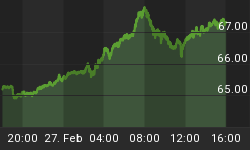As noted in the video below, the markets have little margin for error from a technical perspective, which means they have been in need of some good news. Good news did come this morning from Europe in the form of better than expected factory orders in Germany. On Sunday night, S&P 500 futures hit a low of 1,342. As of 8:30 a.m. EDT, they stood at 1,358 or 16 points above Sunday night's low.
Why were the S&P 500 futures so weak on Sunday night? Elections were held over the weekend in France and Greece. The markets knew there was going to be some political turnover, but the magnitude of the turnover, especially in Greece, was worse than anticipated. Two key problems have surfaced:
- It will be very difficult to form a new government in Greece with no clear majority party/coalition coming out the other side of the elections. It is possible another round of elections will need to be held creating more fear, uncertainty, and doubt for market participants.
- Nicolas Sarkozy was ousted by disgruntled voters in France. The Sarkozy-Merkel tag team is no more, creating uncertainty relative to the direction of future debt crisis policy.
A third problem relates to the market's slowing momentum from a technical perspective. Daily and weekly charts have little room for error as of Friday's close. Given the news from Europe over the weekend, it is unlikely the technicals will improve during Monday's session. The video below shows clear deterioration in trends and momentum; it also explores an excellent way to monitor the battle between "risk on" and "risk off".

One thing we have noticed over the years while building financial models is markets that are on the edge technically can find their footing just as they appear to be ready to accelerate to the downside. That's not a forecast for the current market, which remains on the edge technically, but it serves as a reminder to keep an open mind about where we go from here.
Shifting back to the process of a forming a new government in Greece, Bloomberg reported:
New Democracy leader Antonis Samaras is trying to put together a government after a Greek election that raised fresh questions about the country's euro membership and triggered the biggest stock-market rout in four years. Samaras will be given three days from today to put together a coalition from an assembly split down the middle on whether to renege on the terms of bailout agreements negotiated since May 2010. New Democracy and the socialist Pasok party, enemies until the country's crisis threw them into a national government together this year, are two seats short of the 151 seats needed for a parliamentary majority.















